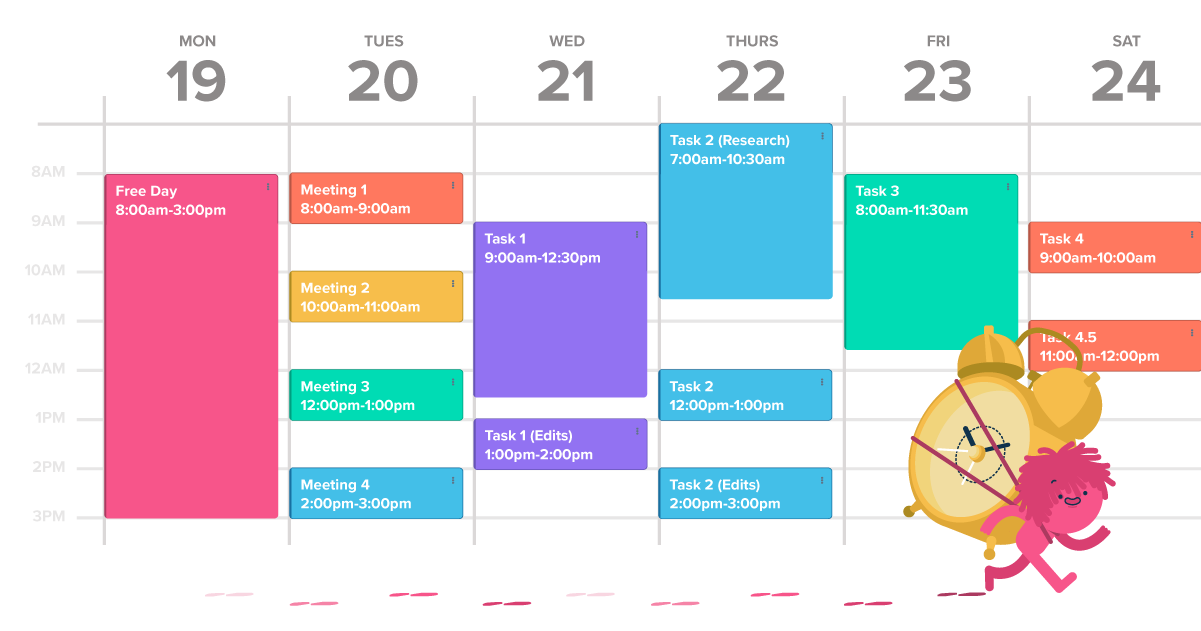Making Friends at University is a Serious Business
No, really. Meeting like-minded people at any stage of your life is very important. We are social beings, after all, and enjoy having someone to talk to, share our joys and woes with, and spend time together. When you start university, scary though it is, you’re entering one of the most promising environments for making friends. Here are some tips on doing so:
- Go to the freshers’ events. Every university has a series of gatherings and events geared towards ‘freshlings’, and you’d do well to attend some of them. From introductory sessions at the uni to city tours to evening events, you will be among the people who are just as confused (and anxious) as you, and you’ll find it easier to bond with them.
- Join societies. Each university has a plethora of student organisations and societies. This is a surefire way to find like-minded people at uni, as societies usually gather around the same theme. They may have to do with your course of study or a totally unrelated hobby. Pro-tip, theatre groups are awesome!
- Go to lectures. While this should be obvious either way – how else are you going to benefit from your studies and pass exams? – attending classes is a great way to get to know people better. Lectures are a wonderful place to meet people, from group discussions to simply exchanging giggles across the classroom when your lecturer AGAIN asks what ‘yeeting’ means and why people are obsessed with Yetis again.
- Join online communities. Facebook may be dying in some places, but in my experience, university groups are usually bustling with activity (especially around exam periods!). You can exchange information about courses and tasks, discuss stuff covered in class, or seek people to hang out with.
- Complain. Seriously, this is the most underrated way to make friends, but it’s the one that NEVER fails. When you complain about something class-related, you are a) lowering your guard and coming across as more human and more approachable and b) voicing everyone’s opinion, which is bound to get some reactions. And BOOM, conversation started! Naturally, you shouldn’t complain about unreasonable things, but there’s always something that irks people at university, and it’s an excellent friend-making strategy.
Other ideas for making friends at university include hanging out with your flatmates, organising/joining study groups (I mean, look at Community, they went full on from a Spanish study group to blanket fortresses and paintball), and, for you more daring souls, simply inviting people to join you for lunch or going on day trips.
Making Friends in a New City
Going to university often means relocating. Relocating tends to mean leaving your friends behind, but that doesn’t have to be the end of the world. Firstly, you’re not breaking up with your old besties. Secondly, the new place has tons of potential new friends. When you move out of your parents’ place and into a new city, you may wonder how you’re going to meet new people and whether you’ll like them, but there are some excellent hacks for making friends in a new place.
- Join a city tour. There are many walking tours around any city where you can meet people of different backgrounds and interests. But just because you may be different, it doesn’t mean you can’t be friends.
- Volunteer. People you meet while volunteering usually have a special place in your heart, especially in new cities. Not only are you doing a good deed for the community, but you’re also doing something for your own soul and well-being. Check out what your city has to offer on noticeboards or online communities.
- Sports events. Screenings, joint watching, celebrations of team wins, and sports events are full of people who share your passion. Nothing gets people going like trashing the opponent team.
- Take up a new hobby. Join an art class, a hiking group, or a board-game session – try new things and have the courage to suck at them. Remember, even if you do suck, you’re not alone in it.
- Join a book club. If I could have it my way, people would be reading much more than they do. Inform yourself about local book club meet-ups and get back into reading. Here are some cool recs that are bound to get a good discussion going.
Making Friends When You Move Abroad
If moving into a new city is scary, the prospect of meeting new people abroad is probably frightful. However, it doesn’t mean it’s true just because you’re afraid of something. For example, if you’ve moved abroad to study or do an exchange, you can follow all the university and city tips from above. Additionally, you can try these:
- Be a member of Girl Gone International. GGI is a far-reaching organisation that has a branch in nearly every city. Its members are ex-pat women (and those who identify as such), and they’re super flexible and open to new things. GGI meetings are always in English, so even if you don’t speak the language of your host country, you’ll be able to get along. Sorry, guys, GGI is women-centric, but you can check out what’s happening in your vicinity via Expatica.
- Join a language course. To truly live comfortably abroad, you should become fluent in the target language. Join a course, and you’ll definitely meet great people.
- Chat up your coworkers. If you’ve moved abroad for work, you should try to make friends with your coworkers. While many cultures do tend to divide work and private life, it doesn’t mean you can’t meet great new friends at your workplace.
Apart from the usual venues, you can join a language tandem, talk to people in pubs and restaurants, or join an organised bus tour to meet new people and strike up friendships.

Making Friends – Apps That Work
You know what, some of us are hard-boiled introverts and just popping up for a book-club meeting is a bit uncomfortable. And that is okay too; there are other ways. Gone are the days when online dating and meeting people over apps were somehow deemed inferior to the real thing. I’m sorry to inform you, but the chances you’ll meet your soulmate (romantic or otherwise) while sulking in front of a romance section in a bookstore are fairly slim. Be proactive instead and do some swiping on one of these apps:
- MeetUp. This little wonder allows you to select your city and check off various interests, and you’ll get recommendations for meet-ups happening around you. It’s always easier to join a group when you know you’ll have a common interest and are bound to talk about it.
- NextDoor. If you’ve just moved into a new neighbourhood, this app is for you. The app is big on privacy, so you’re assured that only you and your neighbours are connected. You can organise yard sales, find babysitters, or arrange get-togethers via the app, and it’s overall a better way to meet your neighbours than to be annoyed by their loud discussions in the hallway.
- Atleto. Fitness junkies who prefer to work out in groups, need an accountability buddy, or are simply interested in exchanging gym tips with others will benefit from this app. You can choose from over 40 sports and create communities and events around them. Don’t forget the hashtag #SportsTogether.
- Meet My Dog. Here’s an app you didn’t even know you needed. Organise playdates for your floofle and meet other owners via this app. It’s a great way to ensure you have something to talk about and even a possible dog-sitter if you’re not at home.
- Dating apps. Tinder, Bumble, MyCupid – whichever you prefer. Dating around is also a good way to meet people; chances are you’ll start a series of platonic relationships along the way. If you don’t want to send the wrong messages, you can also try BumbleBFF (just for making friends).
If you’re using apps to meet people, make sure to follow the common-sense approach to real-life meetups. Find out as much as possible about the person before meeting them. Stick to public places and have at least someone know where you’ve gone. I’m not trying to scare you, but better safe than sorry.

Tips on Making Friends
While you’re finding your feet in a new environment and striving towards meaningful friendships, there are a few more things you should consider:
- Friendship is a two-way street. It’s not enough to join a club or sit next to someone; you need to express interest in people, make an effort to be there for them, and consistently show up. Don’t use people as your personal soundboards either; nobody likes an emotional vampire.
- Be active. Invite people over, organise events, and reach out to your new acquaintances. Friendships hardly ever happen unless you make an effort.
- Know when to stop. Sometimes people are just not interested. Maybe they already have a circle of friends; maybe it’s simply not convenient for them to meet (e.g. if they live too far). You can always keep the friendship alive online, but you should know when it’s time to look for other people.
Why is Making Friends as an Adult so Tough?
Once upon a time, we could plop next to someone and be best friends by the end of the hour. But as you grow older, making friends becomes more and more difficult. Busy lives (thanks, capitalism), kids, differing interests and preferences, and the innate quality of people NOT wanting to learn new things as they grow older – all of these can make friendships more difficult for adults.
Still, as an adult, you should do your best to keep an open mind. Yes, I know you’re tired and prefer to spend your evening tucked in with a good book or TV show, but you can make an effort and try something new every now and then. Don’t be afraid of rejection. Most importantly, schedule time for and with friends, even if you need to plan it a month in advance. And I know that the extrovert in you can make plans today only for the introvert in you to show up and cancel them tomorrow, but sometimes you have to kick your own introverted backside and show up.
Making and Keeping Friends
You know what, all this talk aside, making friends can be tough. Sometimes it’s a matter of a busy schedule, sometimes pure incompatibility. Still, it’s no reason to completely give up. The best way to meet new people and make friends is to show up at themed events (clubs, classes, trips) as this guarantees some common talking points.
Otherwise, try some of these:
- Join online communities/make friends through apps.
- Volunteer.
- Learn a new language.
- Talk to people in restaurants.
- Join a club.
Best of luck, and may the flying spaghetti monster bless you with the best of friends! 😊
To make new friends, you need to show up and make an effort. Join clubs, go to classes, organise get-togethers. Making friends is all about being there for others and doing things together.
Making friends is more than just meeting people and waiting for a miracle to happen. It involves showing up, being there for others, expressing interest in them, and making an effort to spend time together. In return, you get a close companion you can rely on and share the joys and woes of life.
Some of the best ways to make friends include volunteering, joining various hobby clubs, signing up for a sports class, or joining online communities.
How we ensure our content is accurate and trustworthy?
At StudySmarter, we have created a learning platform that serves millions of students. Meet the people who work hard to deliver fact based content as well as making sure it is verified.

Gabriel Freitas is an AI Engineer with a solid experience in software development, machine learning algorithms, and generative AI, including large language models’ (LLMs) applications. Graduated in Electrical Engineering at the University of São Paulo, he is currently pursuing an MSc in Computer Engineering at the University of Campinas, specializing in machine learning topics. Gabriel has a strong background in software engineering and has worked on projects involving computer vision, embedded AI, and LLM applications.
Get to know Gabriel




